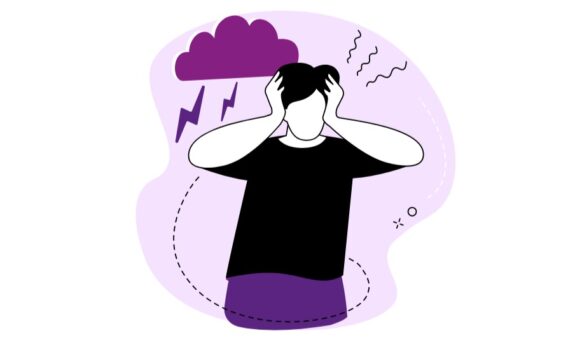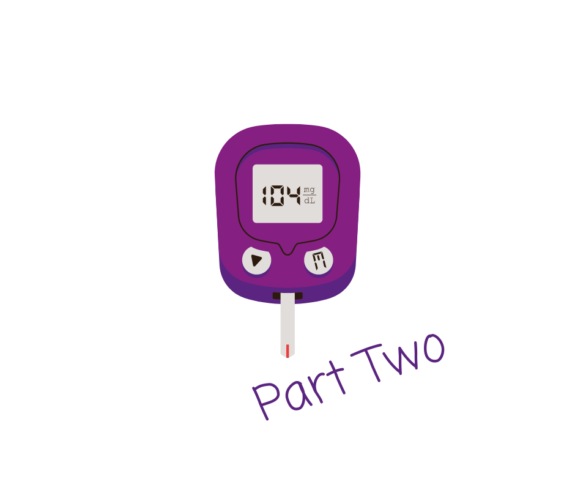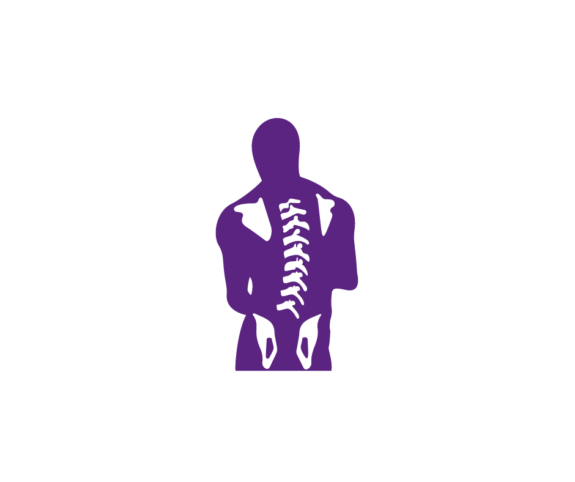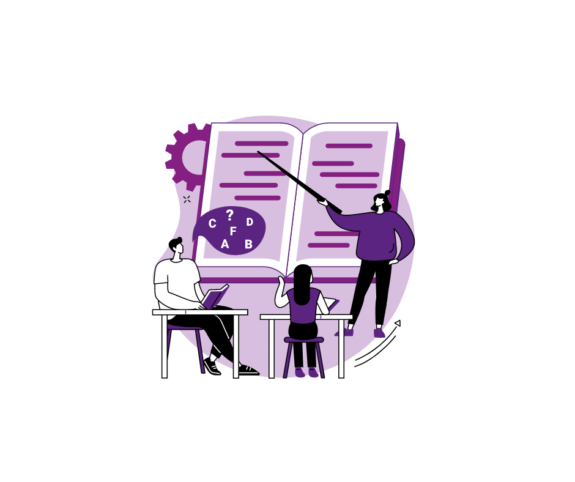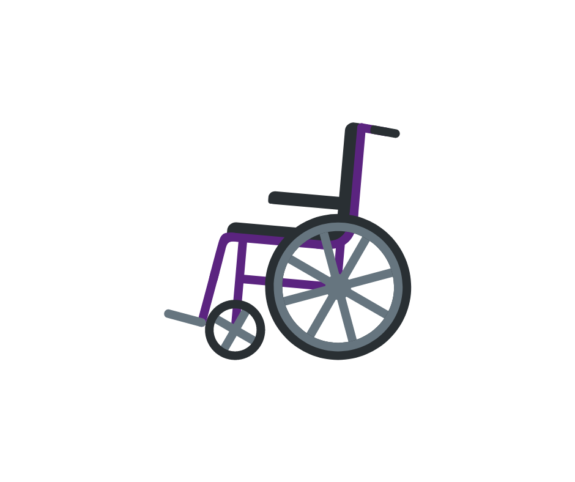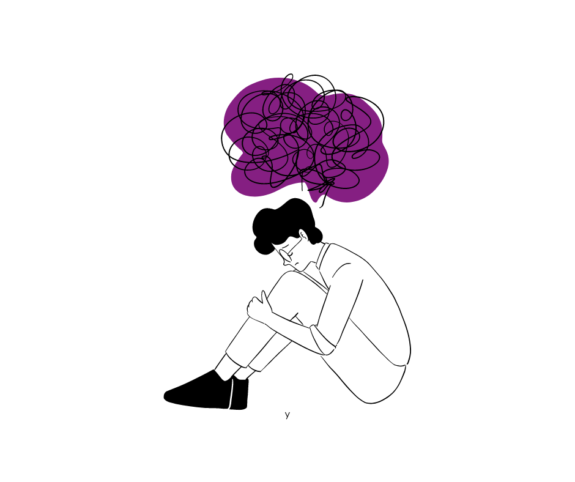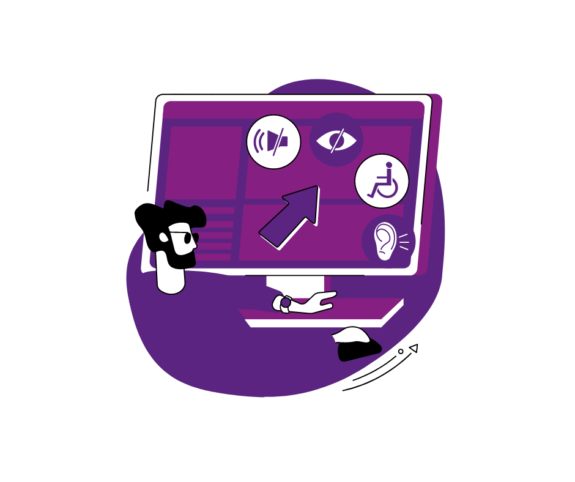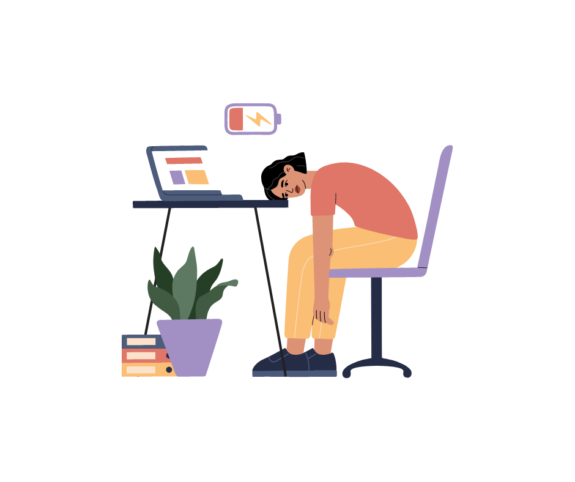Whether it’s feeling worried over an exam, a job interview or a first day at work, we’ve all had those little butterflies in our stomachs. Worrying over a potential future situation or outcome is not necessarily a bad thing, as it does make you look at potential consequences and risks of an action, allowing you to make a suitable decision. However, when we’re unable to stop worrying, that’s when it becomes a problem.
What’s the difference between stress and anxiety?
Stress is generally situational, for example, worrying about an upcoming exam. Once the exam is over, you’ll stop worrying about it. It becomes anxiety when you can’t stop worrying about it, even after it’s passed.
What are the symptoms of anxiety?
There are both physical and mental symptoms of anxiety that can be debilitating and at times, scary. If they’ve never happened before it can be confusing, but taking note of what is happening and when can help you pinpoint the source.
Mental Symptoms
– Feeling alert all of the time
– Racing thoughts
– Over-thinking that you are unable to control
– Difficulty with concentration
– Sleep issues
– A feeling of impending dread
– Feeling like you’re stuck in fight or flight
– Changes in appetite
– A need to escape from a situation
– Dissociation: Feeling like you’re not connected to your body, or watching things happen around you without actually feeling it.
Over time, these symptoms can translate into physical symptoms which, if not treated, can do damage to your health.
Physical Symptoms
– Heavy and fast breathing
– Sweating
– Racing heart
– Heightened blood pressure
– Shaking
– Dry mouth
– Extreme fatigue or lack of energy due to sleep issue
– Dizziness and/or fainting
– Headaches
– Stomach pains/issues and sickness
– Panic attacks
Not everyone will experience all of these symptoms. Some may only feel it mentally and others may only feel the physical effects. However, if untreated, both the mental and physical symptoms can lead to depression, which comes with its own set of problems. So, if you find yourself feeling any of these, it’s good to talk to your GP.
Is there anything to help with anxiety?
There are many things that can help with anxiety. It all depends on what kind of help you’d like and what is available for you.
Medication: There are many medications available to help people with anxiety. If the problem is mild and infrequent, a pharmacist may be able to recommend over-the-counter or herbal options. If it’s causing more of a problem, your GP will be able to advise the best course of action.
Meditation: Meditation and mindfulness are two excellent ways to help keep your anxiety under control. They can teach you how to calm your thoughts so that you only focus on the ones you need to in the moment. If you struggle with meditation, there are apps that can help you focus or you can find guided meditations online.
Breathing Exercises: Simple breathing exercises can be done anywhere at any time and can have a huge effect on anxiety symptoms.
1. Imagine you’re blowing bubbles (or actually blow bubbles). Take a deep breath in and then blow out for as long as you can. Repeat until you feel calmer. Making sure the out-breath is longer than the in-breath, helps to slow your heart rate and lower your blood pressure, helping you stay calm.
2. Breathe in for 3 beats and then breathe out for 6. If that’s too much, try breathing in for 2 beats and out for 4. Again, it’s all about making the out breath longer, but some people prefer counting out a specific time instead of just going as long as they can.
3. Deep breaths. If you’re really getting anxious, then you may not have the ability at that moment to think about specific ways of breathing. If that’s the case, simply try taking deep, even breaths. Aim for 5, then 10, then 15 and keep going until your heart rate starts to even out.
Talking Therapies: Your doctor may recommend talking therapies which is basically, any psychological therapy that involves talking through your problems with a professional. For example: counselling, psychotherapy or CBT (Cognitive Behavioural Therapy). There are many different kinds, so if you feel that whichever one you are using isn’t right for you, try a different one. The best one for you is the one you engage with. Similarly, if you feel you don’t have a connection with the therapist, it’s ok to ask for a new one. They won’t be offended because they want you to get the most out of your experience. You can get talking therapies through the NHS or you can look at other alternatives.
Create a routine: Having order to your days can help to reduce your anxiety levels. This doesn’t have to mean planning out every second of the day but can be as simple as setting a time aside for you to have dinner, go to bed or time for your hobbies.
Alternative Therapies: These are things that would not necessarily be considered mainstream but can be extremely useful. Yoga, Pilates, hypnotherapy and acupuncture can have a positive effect on anxiety.
Exercise: Some people find that exercise is an effective form of stress and anxiety relief. It is possible to overdo it though, so is something that should be monitored. Also, if exercise is not something that you’ve done before or you have certain restrictions, it’s a good idea to speak to your doctor before you embark on a new routine.
Lifestyle Changes: Junk food and caffeine can have detrimental effects on anxiety, so it may be worth looking at what you’re putting into your body. There’s nothing wrong with having them on occasion, but make sure you note any negative effects.
Anxiety has often been associated with a stigma of being weak and unable to cope, but this simply isn’t true. It can happen to anyone at any time and the statistics show that over 8 million people in the UK are diagnosed with an anxiety disorder at any one time. However, only 50% of these actually seek out treatment. Statistics also show that disabled people or those with chronic health conditions are disproportionately affected, particularly throughout the pandemic.
Anxiety can be managed, so if you find yourself struggling, please reach out to someone. If you’re not comfortable talking to someone you know, then take a look at our resources below:
Helplines:
https://www.nhs.uk/every-mind-matters/urgent-support/
Anxiety and Disabled People:
https://www.cogentica.com/anxiety/
Apps to help with anxiety:
Anxiety Websites:
https://www.anxietyuk.org.uk/get-help/helpline-services/
http://www.social-anxiety.org.uk/
References:
https://championhealth.co.uk/insights/anxiety-statistics/
https://www.nhs.uk/every-mind-matters/mental-health-issues/anxiety/
https://www.nhs.uk/mental-health/conditions/generalised-anxiety-disorder/overview/
https://www.mentalhealth.org.uk/explore-mental-health/a-z-topics/anxiety
https://www.netdoctor.co.uk/healthy-living/mental-health/advice/a26255/anxiety-myths-and-facts/
